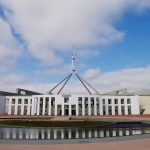Turnbull Continues Assault on Civil Liberties

On Tuesday, Australian prime minister Malcolm Turnbull delivered his National Security Statement before parliament. During his speech, the PM focused on the threat of terrorism, declaring that his government was committed to “balancing the priority of community safety with individual liberties.”
However, looking back at the track record of recent governments in this country it’s likely that more civil liberties will be whittled away on the pretext of protecting Australian citizens against the somewhat elusive threat of Islamic terrorism.
The prime minister began his speech by mentioning that the nation has been mourning four Australians, who’ve been killed in attacks over recent weeks. Twelve-year-old Zynab Al-Harbiya was killed in a suicide bombing in Iraq, while Kirsty Boden and Sara Zelenak were killed in the London attacks.
The fourth person to have lost their life was Kai Hao, who was tragically killed in the so-called terrorist attack in Brighton, Victoria last week. Mr Hao was shot by long-time criminal Yacqub Khayre. It was reported that Islamic State claimed responsibility for the incident.
Mr Turnbull then outlined that the national terror threat level in this country has been raised to “probable” since September 2014.
This is despite no major terrorist incidents having actually occurred in Australia over recent years. Indeed, the Martin Place siege is often referred to as a terrorist attack. However, it was carried out by Man Monis, a mentally ill man shown to have no links to any terrorist organisations.
Liberties whittled away
Throughout the rest of his speech, Turnbull listed a number of laws that have been enacted – or are yet to be enacted – that have actually watered-down the freedoms of those living within Australia’s borders, due to the supposed threat of onshore Islamic terroris
Post-sentence preventative detention orders were the first of the laws the prime minister mentioned.
Under the Criminal Code Amendment (High Risk Terrorist Offenders) Bill passed through federal parliament on December 2 last year, the government now has the power to continue detaining convicted terrorists after their sentence is over if they’re deemed an unacceptable risk to the public.
The prime minister gained support for this bill from the state and territory governments at a Council of Australian Governments meeting in December 2015. Last week at another such meeting, Turnbull secured the support of these governments once more for a new terrorist-related law.
This time the legislation will be designed to toughen national parole laws for criminals with terrorist links. There will now be a presumption against granting bail and parole for these inmates.
The metadata laws
The mandatory data retention laws were also referenced by the PM, as an example of when the government has had to make the “necessary decisions” to guard against “criminals and extremists” that have “sought to divide” the community.
Australia’s data retention laws came into effect on October 13, 2015. They require telcos and internet service providers to store their customers’ metadata – the time and date of calls, emails, text messages and internet sessions – for the period of two years.
This information can reveal who a person has been in contact with, and their location at the time. And it can be accessed without a warrant by up to 21 law enforcement agencies that are led by ASIO.
At the state level
However, it’s not just the federal government implementing laws that have been steadily eating away citizens’ rights. The state governments have been having a good crack at it as well.
In NSW, the state government is currently introducing a raft of tough and smart justice reforms that see a further erosion of civil liberties. These include making it harder for any prisoner said to have a “potential for radicalisation” to be released on parole, even if their offence has nothing to do with terrorism.
Last week, premier Berejiklian announced her government is introducing new “shoot-to-kill” laws. Under these measures, police will be given immunity if they pre-emptively shoot a person they suspect of terrorism, even if this person isn’t posing an imminent threat to others.
This extreme measure comes in the wake of another change in policy introduced at the end of 2015. This saw NSW police adopting a “shoot first” response to the threat of domestic terrorism. It allowed police to shoot a person they suspect may be an armed terrorist on sight.
And these are just a few examples of NSW citizens having their rights watered-down on the pretext of public safety.
Over recent years, the presumption of innocence has been reversed, the right to silence has been removed, police are now able to perform warrantless searches, and under NSW consorting laws, it’s illegal to communicate with a person who has a criminal record, after police warn you against it.
History repeats
As new laws are being enacted in democratic Australia that are slowly taking away citizens’ freedoms in the name of a Muslim terrorist threat that never seems forthcoming, it might be wise to remember that similar situations have occurred in the past in seemingly liberated nations.
Right before the Nazis took control in Germany, the golden era of the Weimar Republic was taking place. And as this period in history was coming to a close, laws were passed that saw the civil liberties of the republic’s citizens reduced.
The freedom of the press was taken away, as well as the right to organise and assemble. While the right to privacy in regards to the post, telegraph and telephone communications was also brought to an end.
Sound familiar?
And as the Nazis moved in and further tightened their control on the German population, it was all done in the name of protecting citizens against the Jewish threat. And that attitude then led to the mass genocide of the Holocaust.
In the era of Trump
Just like the threat of the communists during the Cold War, the threat of the Islamic terrorists has been a part of the national psyche for decades now. But it’s really over the last half decade that this supposed threat has led to a raft of laws that have ultimately diluted citizens’ rights.
And while conservative figures like John Howard and George W Bush loom in the not too distant past, it seems that such a reactionary US president as Donald Trump has never been seen before, and unfortunately, prime minister Turnbull appears all too ready to follow his lead.








